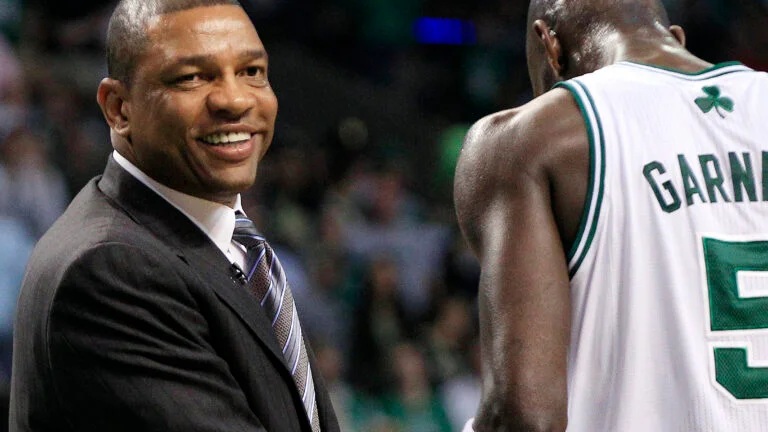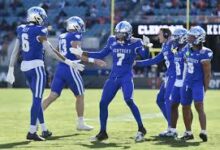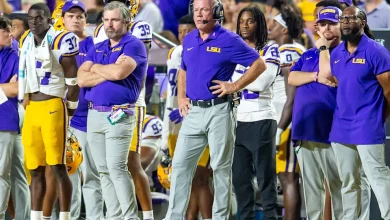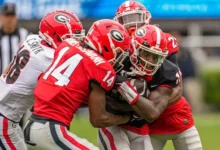Kevin Garnett praises Doc Rivers as one of the most intelligent people he’s met, though Rivers’s on-court tactics have received mixed reviews and aren’t universally highly regarded.

Kevin Garnett, one of the most iconic and fierce competitors in NBA history, has always been known for his intensity, passion, and high basketball IQ. During his tenure with the Boston Celtics, Garnett played a pivotal role in transforming the franchise into a championship contender, and his respect for those around him, especially his coaches, offers valuable insight into his understanding of leadership and strategy.
Among those Garnett has spoken highly of is Doc Rivers, the former Boston Celtics head coach. Garnett has publicly acknowledged Rivers as one of the most intelligent people he’s met, highlighting the coach’s strategic acumen and mental sharpness. However, Rivers’s coaching approach and tactics have often been met with mixed reviews from analysts, players, and fans, sparking debate about his effectiveness and style. This complex dynamic — Garnett’s praise contrasted with the varied perceptions of Rivers’s tactics — offers a compelling case study in leadership, intelligence, and coaching philosophy in professional basketball.
Kevin Garnett’s Praise: Recognizing Intelligence and Leadership
Garnett’s admiration for Doc Rivers’s intelligence stems from firsthand experience. As a highly cerebral player, Garnett valued coaches who could think critically, adapt to circumstances, and communicate strategies effectively. Rivers, known for his calm demeanor and strategic mind, exemplified these qualities.
In interviews and public statements, Garnett has often spoken about Rivers’s ability to analyze situations quickly, read the game, and make adjustments. Garnett, who played under multiple coaches throughout his career, singled out Rivers for his exceptional basketball IQ, tactical understanding, and ability to motivate players. His praise suggests that Rivers’s strength lies in his mental acuity, his capacity to craft game plans, and his talent for managing personalities and egos within the team.
Garnett’s recognition is particularly significant because it comes from a player renowned for his own basketball intelligence and competitive edge. Garnett’s respect signifies that Rivers’s intellectual qualities are not merely superficial but are deeply rooted in genuine basketball knowledge and leadership skills. This acknowledgment elevates Rivers beyond just a tactician; it frames him as a coach who understands the nuances of the game and can leverage that understanding to improve team performance.
The Dichotomy: Mixed Reviews of Rivers’s On-Court Tactics
While Garnett lauds Rivers’s intelligence, opinions on his tactical approach have been varied. Some critics and analysts have questioned whether Rivers’s strategies are always optimal, especially in high-pressure playoff situations.
Strengths of Rivers’s Coaching Tactics:
- Player Management: Rivers is widely praised for his ability to handle star players and egos, fostering a cohesive team environment.
- Adaptability: He’s known for adjusting game plans and rotations based on opponents and in-game developments.
- Clutch Experience: Rivers’s teams have often shown resilience and composure in crucial moments, reflecting effective leadership.
Criticisms of Rivers’s Tactics:
- In-Game Decision-Making: Some have pointed out that Rivers’s in-game adjustments, such as rotation changes or defensive schemes, have sometimes been slow or ineffective.
- X’s and O’s: Critics argue that Rivers may not always employ the most innovative or analytically driven strategies, relying instead on experience and intuition.
- Overreliance on Star Power: There’s a perception that Rivers sometimes leans heavily on star players to carry the team, potentially neglecting deeper tactical adjustments.
This divergence of opinion underscores a broader debate in coaching philosophy: Is success primarily driven by strategic ingenuity or by leadership and player management? Rivers’s career reflects a blend of both, but opinions on his tactical effectiveness vary depending on the context and the evaluator’s perspective.
Why Do Perceptions Differ?
The mixed views on Rivers’s tactics can be attributed to several factors:
- Evolving NBA Trends: Modern basketball emphasizes analytics, pace, spacing, and innovative schemes. Rivers, often seen as a traditional or pragmatic coach, may not always align with these evolving trends.
- Team Composition: Rivers’s coaching style may be better suited for certain rosters. The Celtics’ 2008 championship team, for example, thrived under his leadership, but other teams or seasons may have exposed tactical limitations.
- Expectations and Outcomes: Successes, like the 2008 NBA Championship and multiple playoff runs, bolster Rivers’s reputation. Conversely, early playoff exits or controversial decisions can lead to criticism.
The Role of Leadership and Intangibles
Despite tactical debates, Rivers’s leadership qualities are widely acknowledged. His calm demeanor, ability to communicate, and capacity to inspire have earned him respect from players like Garnett, Paul Pierce, and Ray Allen. Garnett’s recognition of Rivers’s intelligence underscores that leadership isn’t solely about tactical mastery but also about understanding people, motivating them, and making strategic decisions under pressure.
Garnett’s Respect for Rivers’s Intelligence
Garnett’s statement that Rivers is among “the most intelligent people” he’s met emphasizes the value of mental acuity in coaching. It signifies that Garnett sees Rivers as someone who comprehends the game at a deep level, capable of devising plans that maximize team strengths and exploit opponents’ weaknesses. It also suggests that Garnett valued the coach’s ability to communicate complex ideas effectively, foster a positive team environment, and maintain focus during critical moments.
Balancing Tactical Effectiveness and Leadership
The contrast between Garnett’s praise and the mixed reviews of Rivers’s tactics illustrates an important point: effective coaching in the NBA isn’t solely about X’s and O’s. It involves a combination of tactical knowledge, emotional intelligence, leadership skills, and adaptability.
Rivers’s success, including an NBA championship, indicates that his blend of strategic understanding and leadership has been effective overall. However, in the fast-evolving landscape of basketball, critics may wish for more innovation or different tactical approaches, especially when results fall short.
A Complex Legacy
Kevin Garnett’s high regard for Doc Rivers’s intelligence highlights the importance of mental sharpness and leadership in coaching. While Rivers’s tactical approaches have faced criticism and debate, his ability to connect with players, manage personalities, and adapt to circumstances has contributed significantly to his teams’ successes.
This nuanced dynamic reflects the multifaceted nature of coaching at the highest level. It underscores that being “smart” in basketball isn’t just about strategic schemes but also about understanding people, making decisions under pressure, and inspiring a team to perform at its best.
In summary, Garnett’s praise of Rivers as one of the most intelligent people he’s met is a testament to the value of mental acuity in leadership. At the same time, the varied opinions on Rivers’s tactics serve as a reminder that success in the NBA often depends on a complex interplay of strategy, leadership, adaptability, and timing. Rivers’s legacy, therefore, is a reflection of both his keen mind and his ability to navigate the intricate human and tactical elements of professional basketball.









